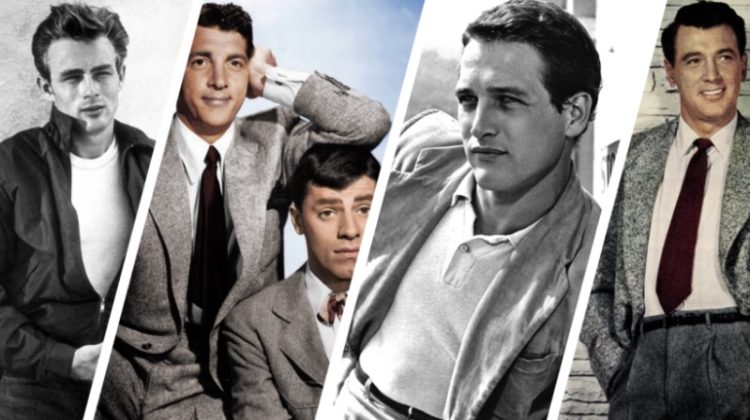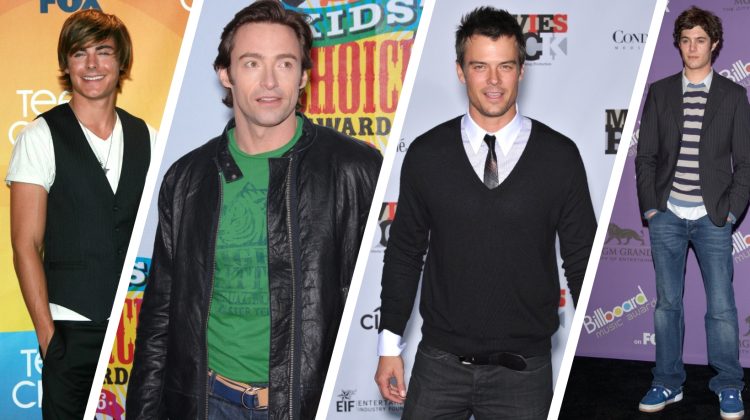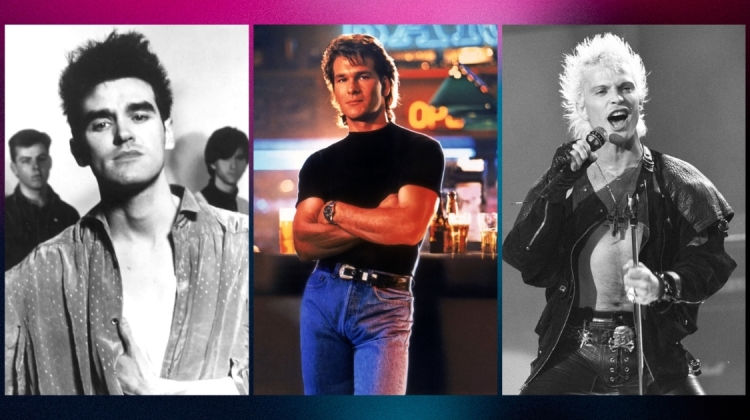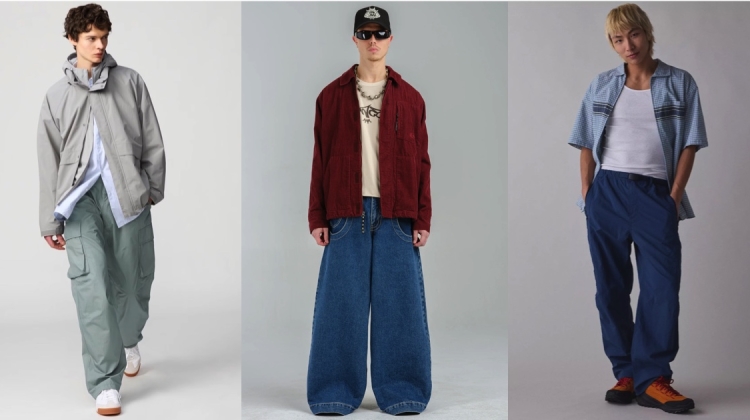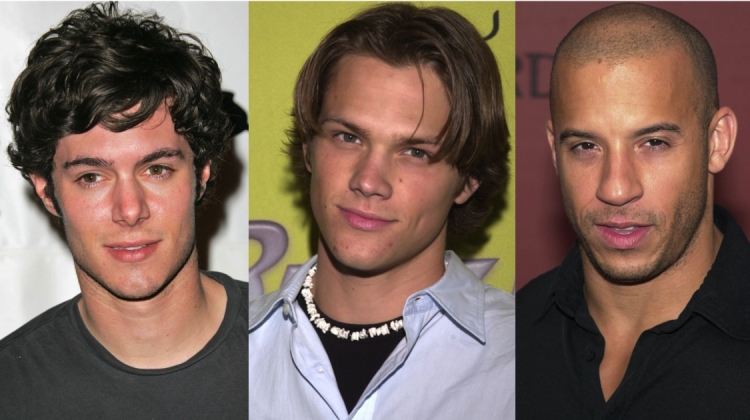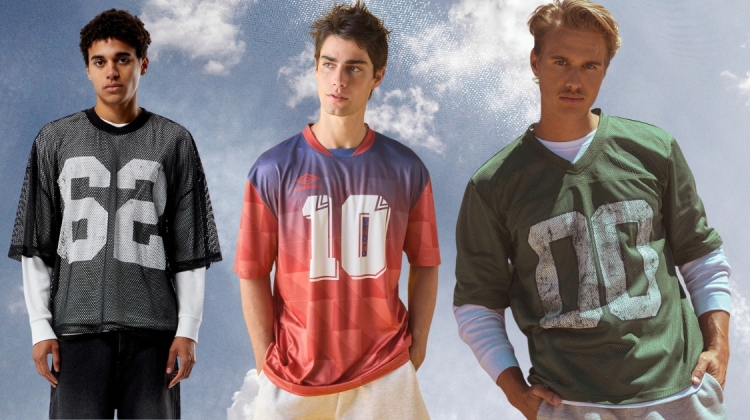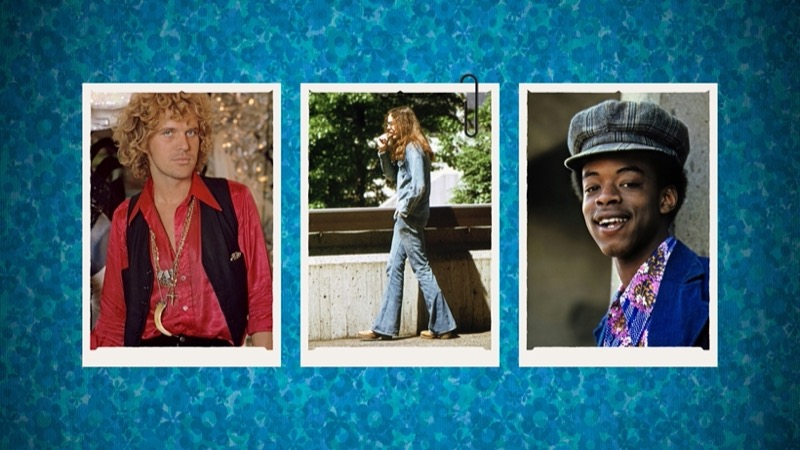
1970s men’s fashion continues to leave its mark, surfacing everywhere from Valentino runways to Zara racks. Wid lapels and flared pants recall the days of Studio 54 and London’s Carnaby Street, channeling the fashion decade’s energy. 70s outfits for men remain a reference point in fashion, inspiring new takes on tailoring and casual wear in today’s collections.
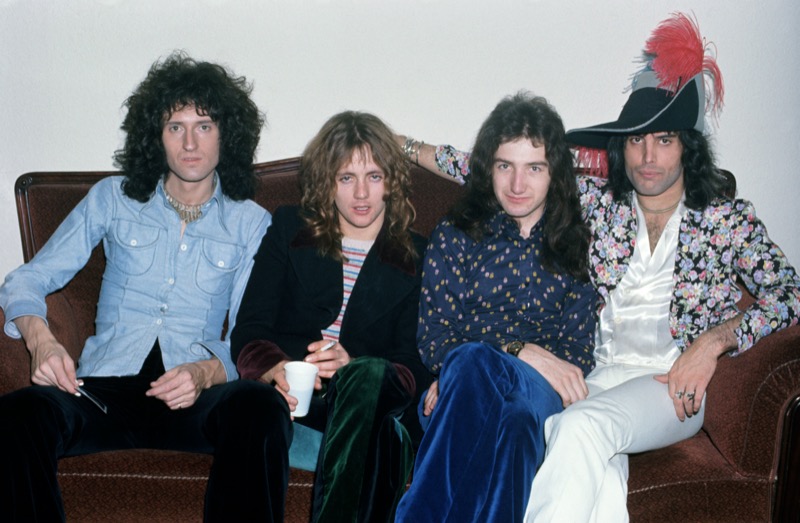
The 1970s carved out a reputation for daring style, with icons like Freddie Mercury setting the tone for self-expression. Building on the bold spirit of the late 1960s fashion, the decade embraced playful experimentation. Men’s fashion stepped into new territory, favoring dramatic shapes that signaled a break from tradition.
70s Men’s Fashion
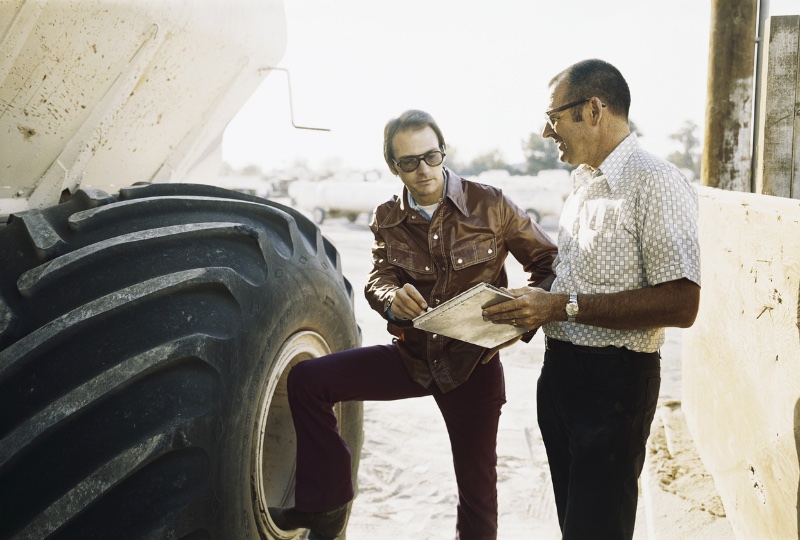
Tailoring stood front and center in 1970s menswear, giving rise to distinct silhouettes across jackets, pants, and shirts. Designers and style-minded men alike gravitated toward bold lines and dramatic proportions, aiming for a look that balanced flair with confidence.
Key 70s men’s outfits featured bell bottoms, silk shirts, velvet pants, and double-breasted coats, frequently finished with bold prints and vivid colors.
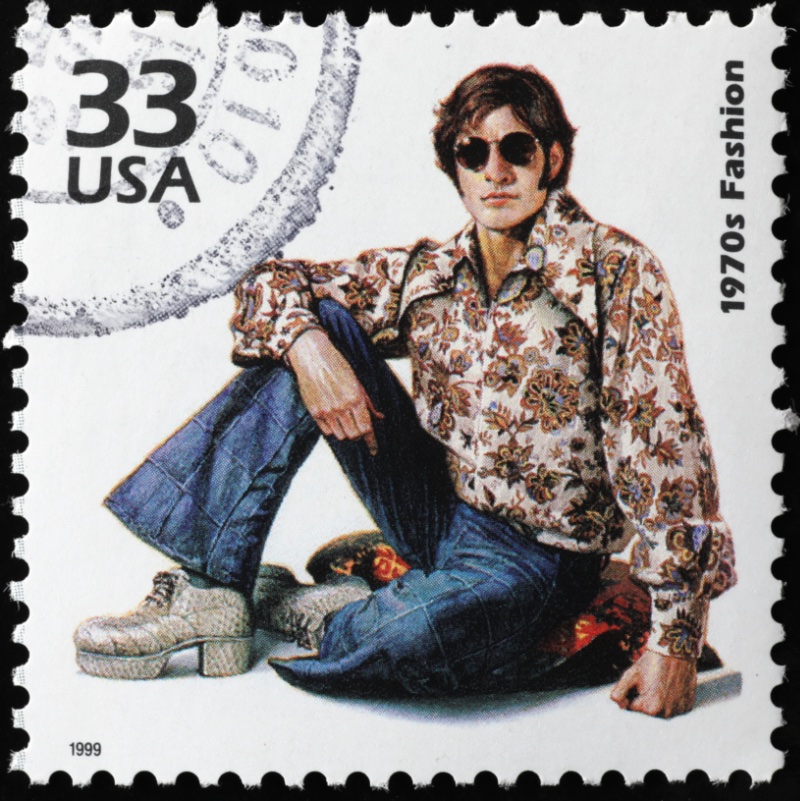
Accessories helped define 70s fashion for men, from chunky platform shoes and brightly colored scarves to statement fedoras. Many embraced facial hair and long sideburns, adding another layer of drama to the era’s bold style.
For those interested in 70s outfits for men or aiming to channel the era’s signature attitude, there are countless ways to bring this iconic decade into a modern wardrobe and stand out with confidence:
Fashion Colors
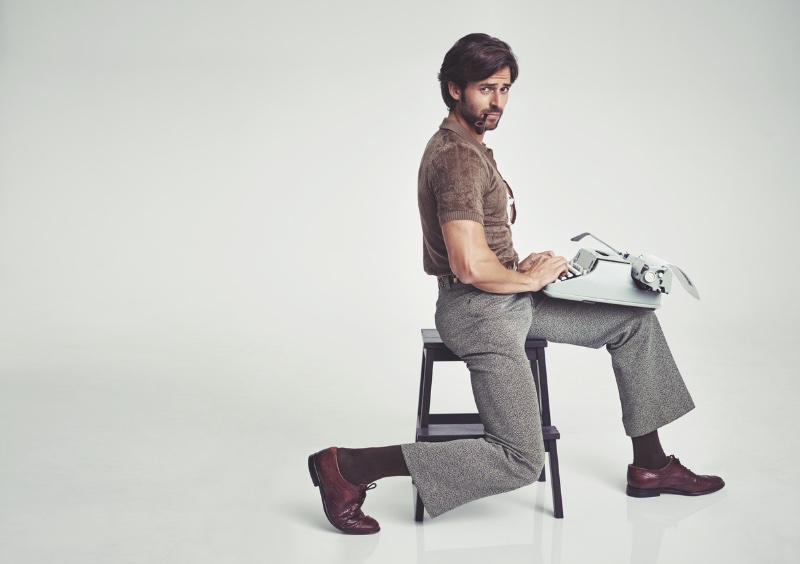
So, what colors were popular during the 1970s? While the decade was known for its vibrant and sometimes wild color choices, it’s important to note that there was a specific color palette.
Shades of brown, beige, black, white, and grey were popular choices. Neutral colors were widely used in male attire, with fabrics such as corduroy, knitwear, and silk shirts, while colorful pieces, especially plaid prints, were also popular.
Men’s Wide Lapels Were En Vogue
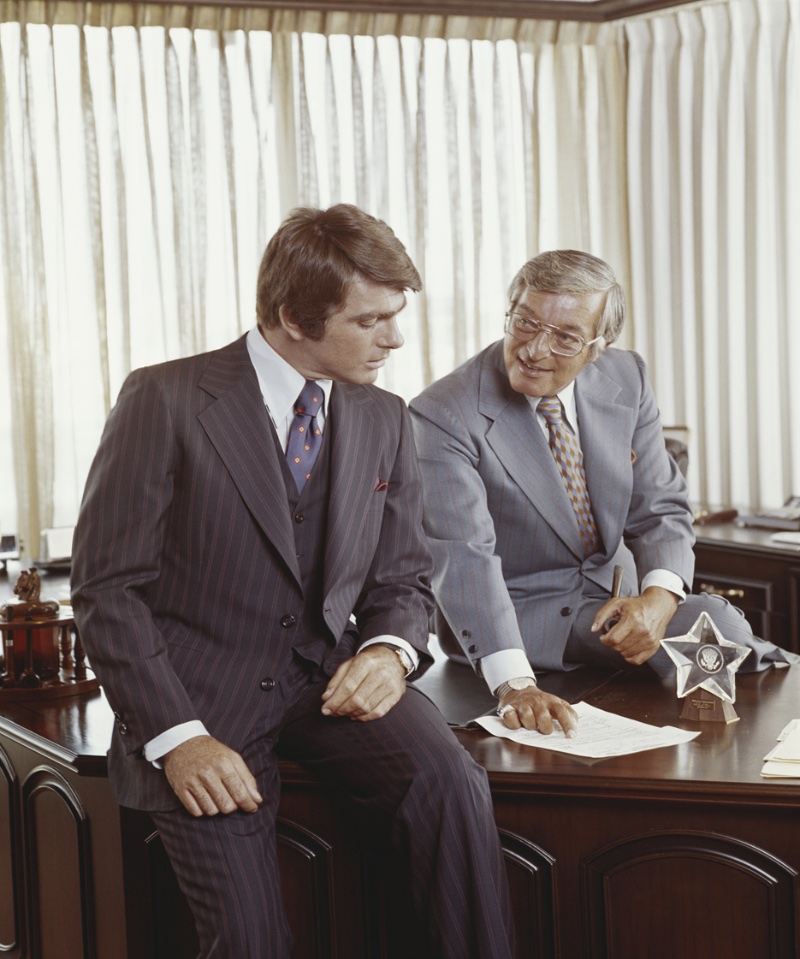
There is no better way to define the 1970s than with wide lapels in menswear—a defining trend of that decade. Whether you were sporting a blazer, three-piece suit, or tuxedo jacket, the seventies were all about wide lapels.
While these garments may seem odd by today’s standards, it’s important to remember that menswear, at the time, focused on bold, unconventional choices.
The Chic Turtleneck or Roll Necks
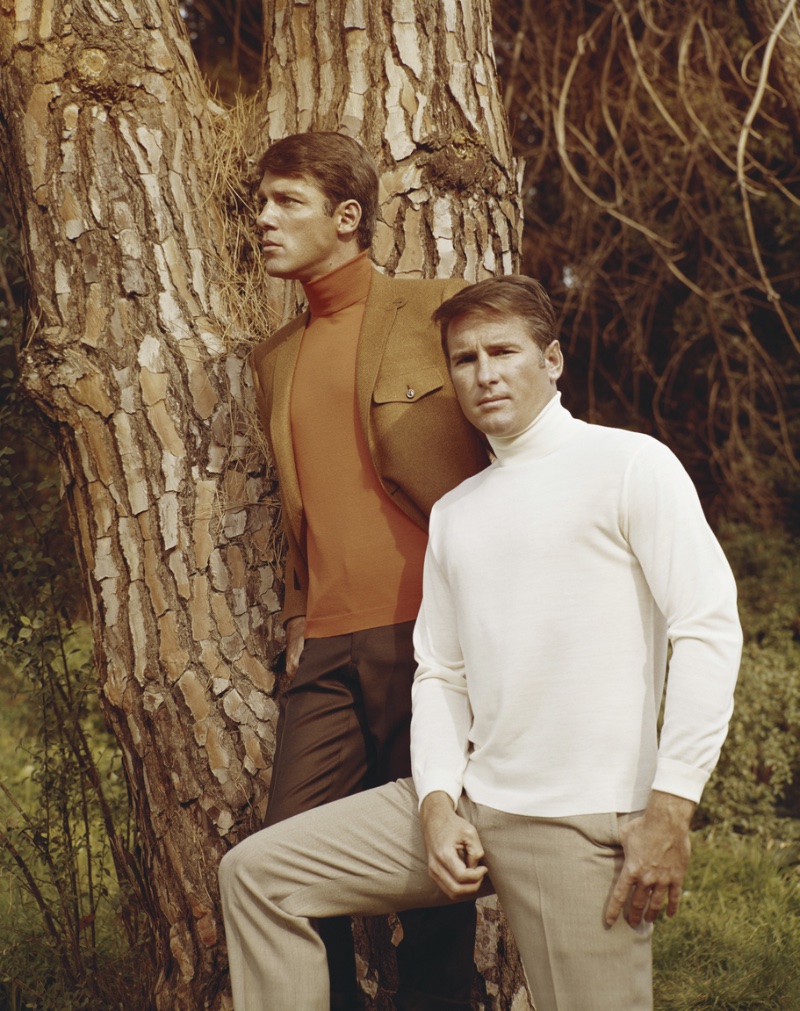
In the 70s, nothing spoke sophistication louder than a turtleneck. Turtleneck sweaters were a go-to choice during this era. They provided warmth and elegance.
Whether sporting a classic black turtleneck or something more colorful like red or teal, a turtleneck is a surefire way to pay a nod to the seventies and look sharp. After all, men confidently rocked their turtleneck outfits with everything from jeans to slacks.
Vintage Disco Moment
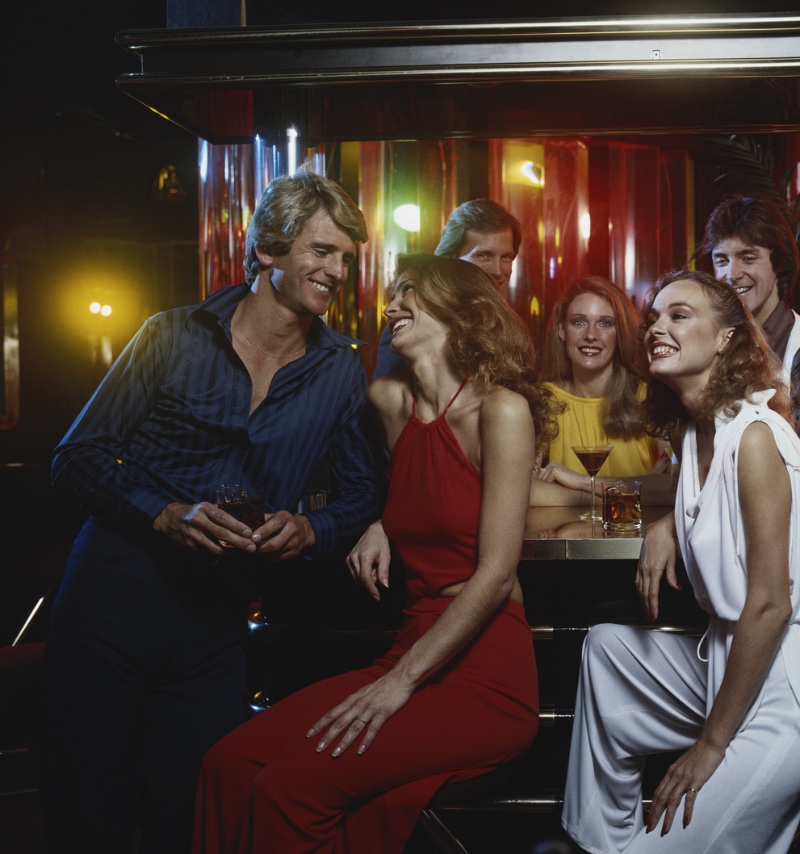
From the lively dance floors to the trendy bars, guys embraced disco fashion fervently. The disco aesthetic is best known for its tight fits in bright colors, bold prints, sequins, and sparkles, contributing to a strong sense of personal style.
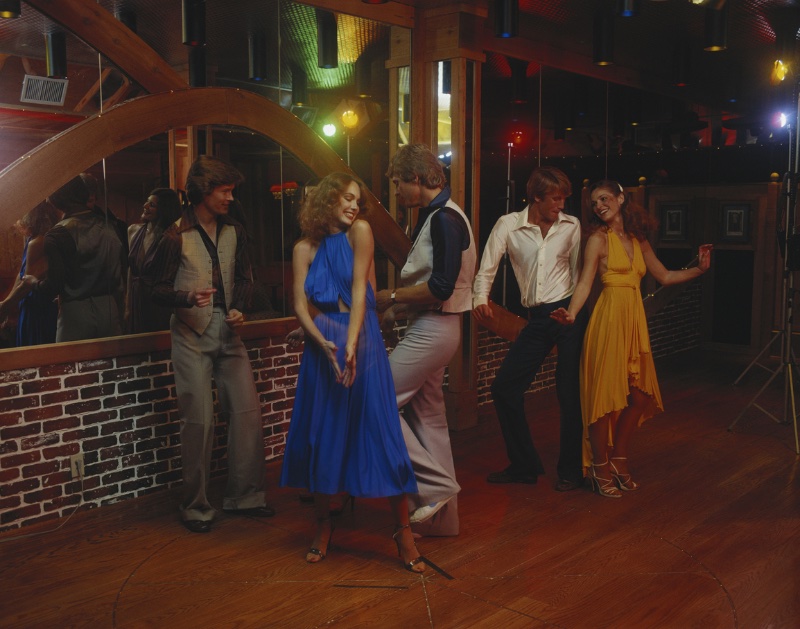
Popular 70s disco clothes included polyester bell bottoms, vests, and silky shirts with oversized collars and sleeves, often paired with fringed accessories. A typical men’s disco outfit featured large glasses, leather belts, fedoras or boaters, and watch fobs, all celebrating the era’s flashy, statement-driven spirit.
Real 70s disco outfits regularly incorporated platform shoes, the ultimate staple for men aiming to command attention on the dance floor.
Men’s Corduroy Craze
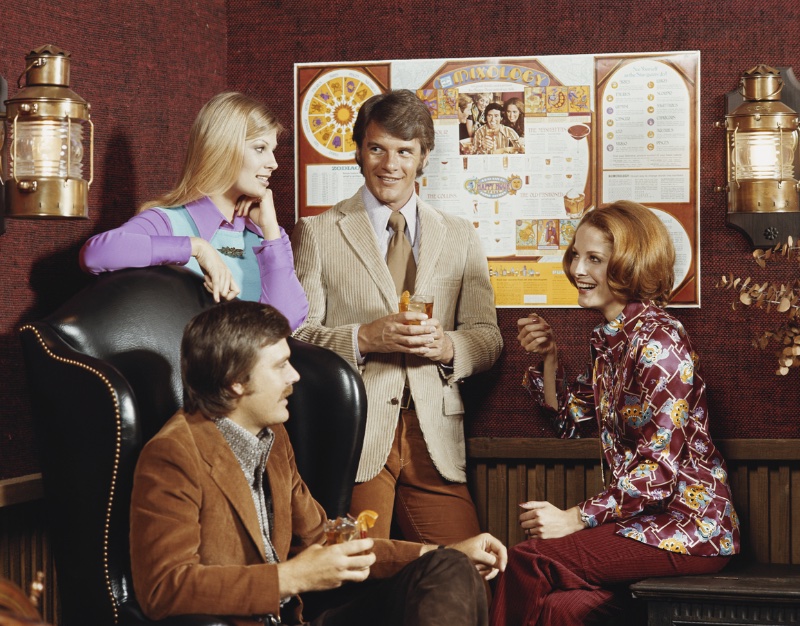
Corduroy was a fashion staple in the 1970s. Its soft, plush feel made it popular for formal wear and casual styles. Corduroy pants, in particular, were a go-to item, often paired with jackets and vests crafted from the same fabric in various colors and patterns.
Popular corduroy hues included earthy tones like brown, green, blue, and grey, making the fabric versatile in 70s wardrobes.
The Luxury of a Silk Shirt
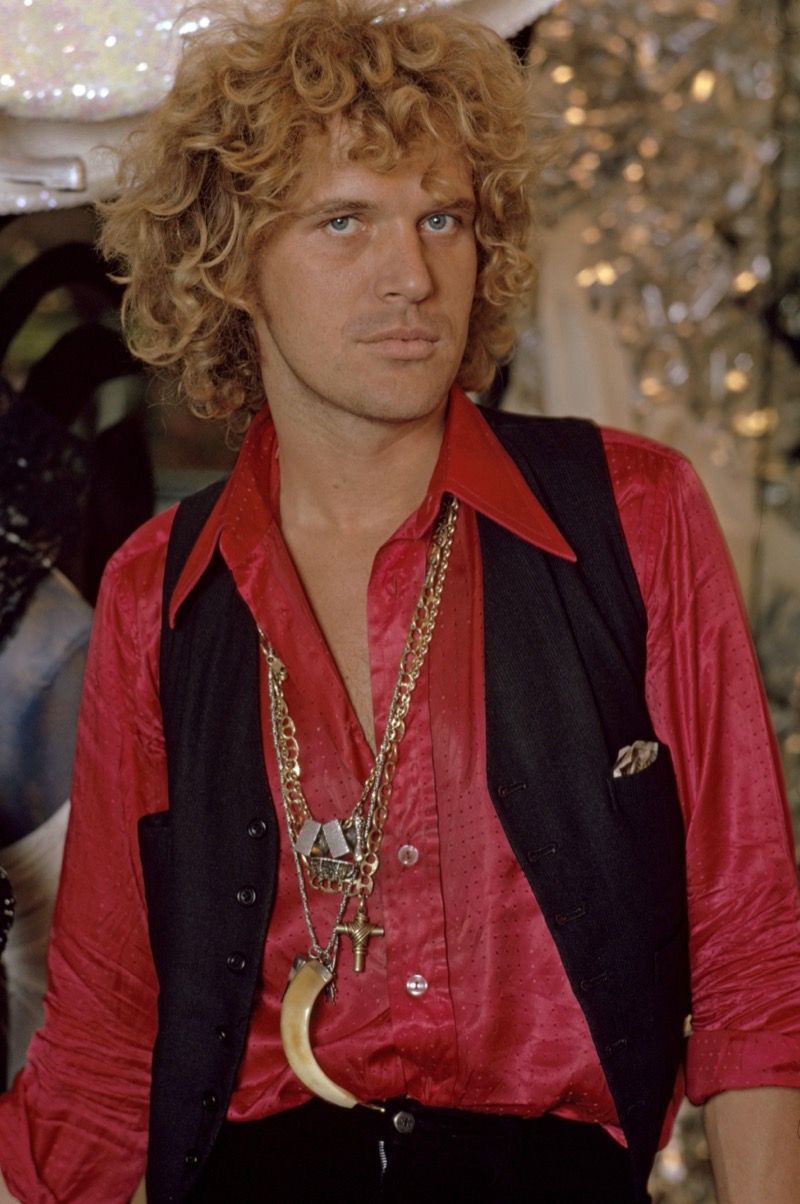
Silk shirts ranked high among 70s fashion trends, turning heads with their sheen and drape. The decade saw men sporting button-downs and open-collar styles alike, making silk shirts a favorite for both formal events and nights out. Paired with everything from trousers to jeans, silk shirts brought polish to any outfit.
Denim in the 70s
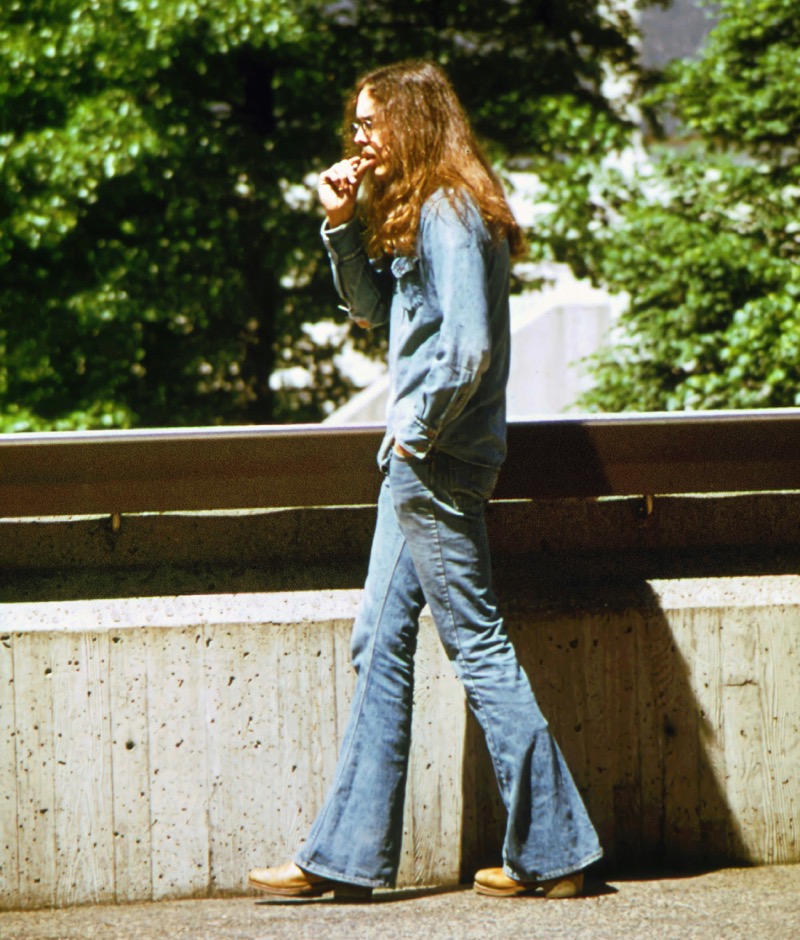
Casual 70s men’s fashion found its voice in denim, a fabric that signaled a break from the expected. Denim jackets, often finished with patches or embroidery, and bell-bottom jeans became staples for rock stars, activists, and anyone eager to challenge convention. Together, these pieces gave men’s 70s fashion a distinctive silhouette.
Musicians like Jimi Hendrix and Jim Morrison cemented denim as a cornerstone of 70s style, pairing jackets with silk scarves or vibrant shirts. Bell-bottom jeans showed up with platform shoes or loose tunics, capturing the decade’s taste for bold proportions.
The Hippie Look
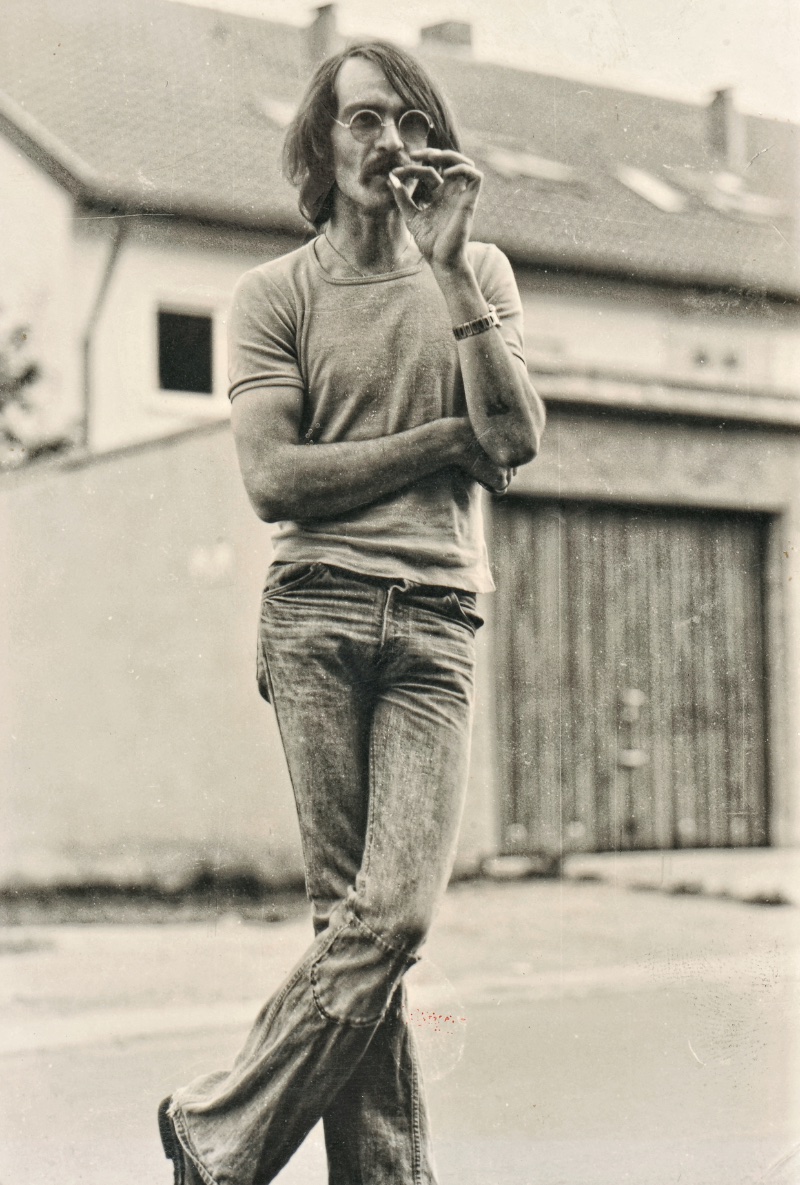
Hippie fashion surged in the 1970s, channeling a carefree, anti-establishment spirit through loose-fitting shirts, bell-bottom jeans, signature long hair, and beards. Hippie shoes, from well-worn sandals to moccasins, completed the look.
Rooted in counterculture movements, this aesthetic moved away from conventional norms, favoring unstructured clothing and natural materials that celebrated freedom and self-expression.
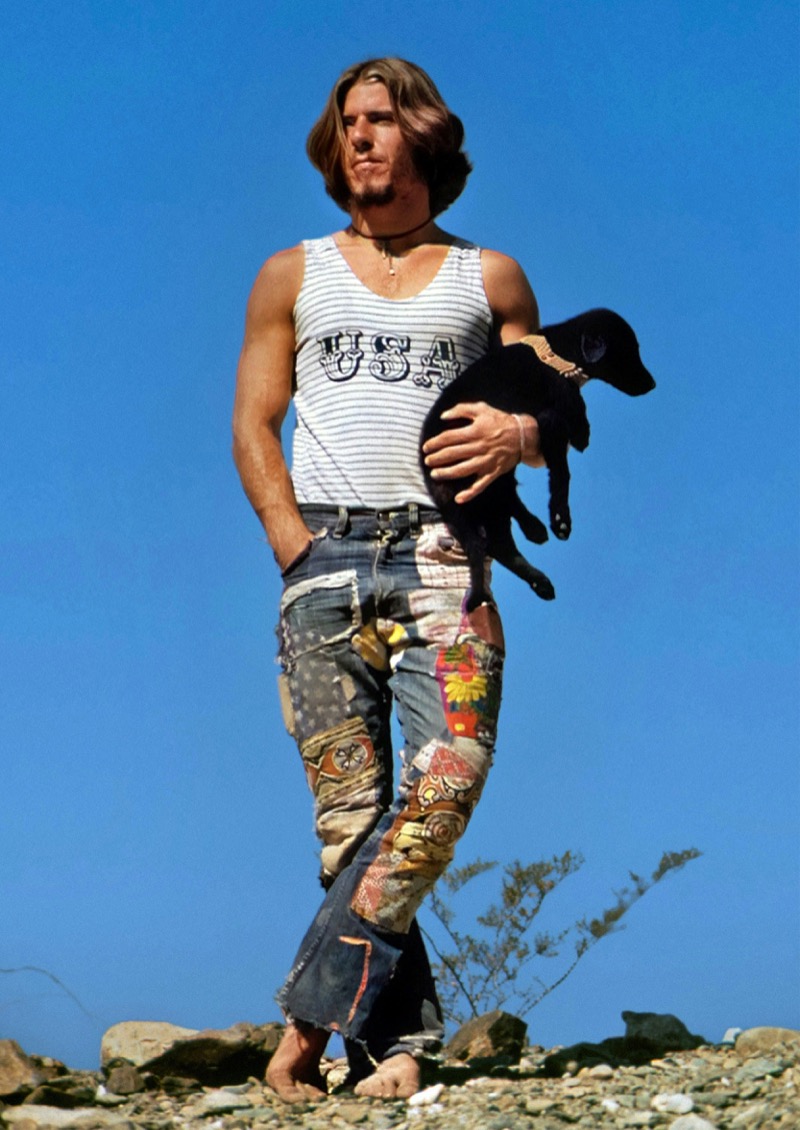
Hippie ensembles often featured earthy tones, vibrant tie-dye prints, and floral patterns, with accessories like platform shoes, headbands, and beaded jewelry adding to the eclectic mix. This hippie style reflected a deeper connection to nature and non-conformity, cementing its place in 70s fashion history.
Patterned Knitwear for Every Occasion
70s patterns played a starring role in men’s knitwear, from bold stripes and argyle to geometric prints and florals. Knit pieces in wool or cotton delivered both comfort and personality, giving men countless ways to showcase individuality through their sweaters and vests.
Seventies Men’s Suits
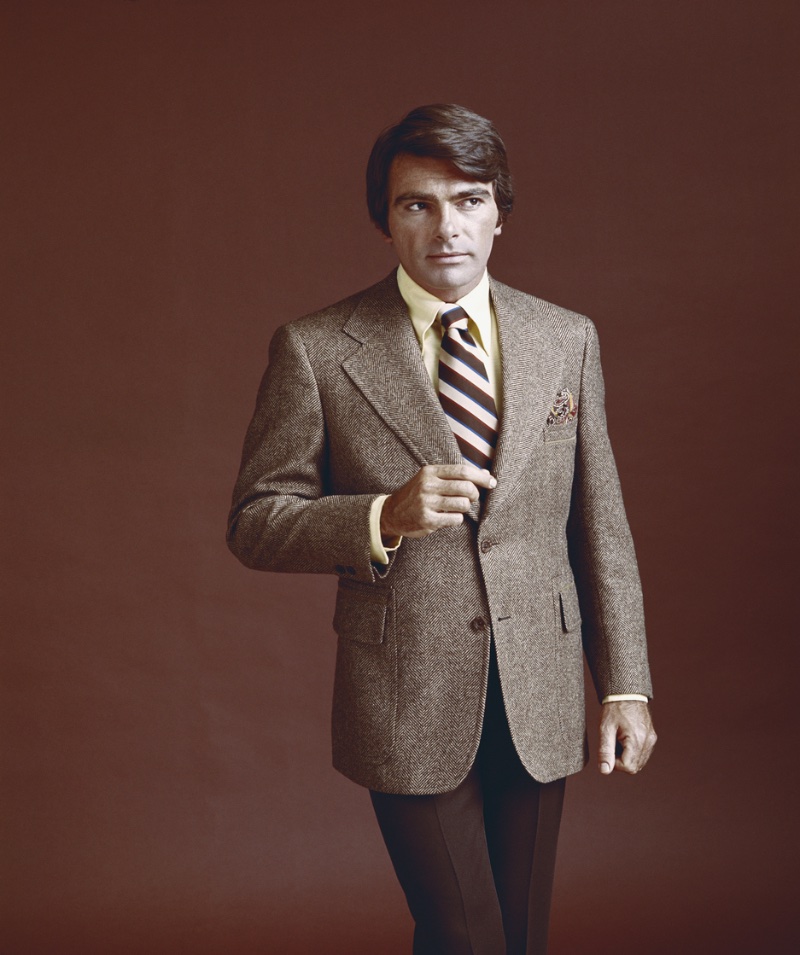
What man’s wardrobe would be complete without a suit? The man’s suit was a 70s staple and featured notable updates from the previous decade.
The 70s suit jacket was often slightly shorter than usual, while the waist included more defined shaping to give a sleek silhouette. Men wore suits with dress shirts, ties, and other accessories for an ultra-dapper look.
Muscle Culture
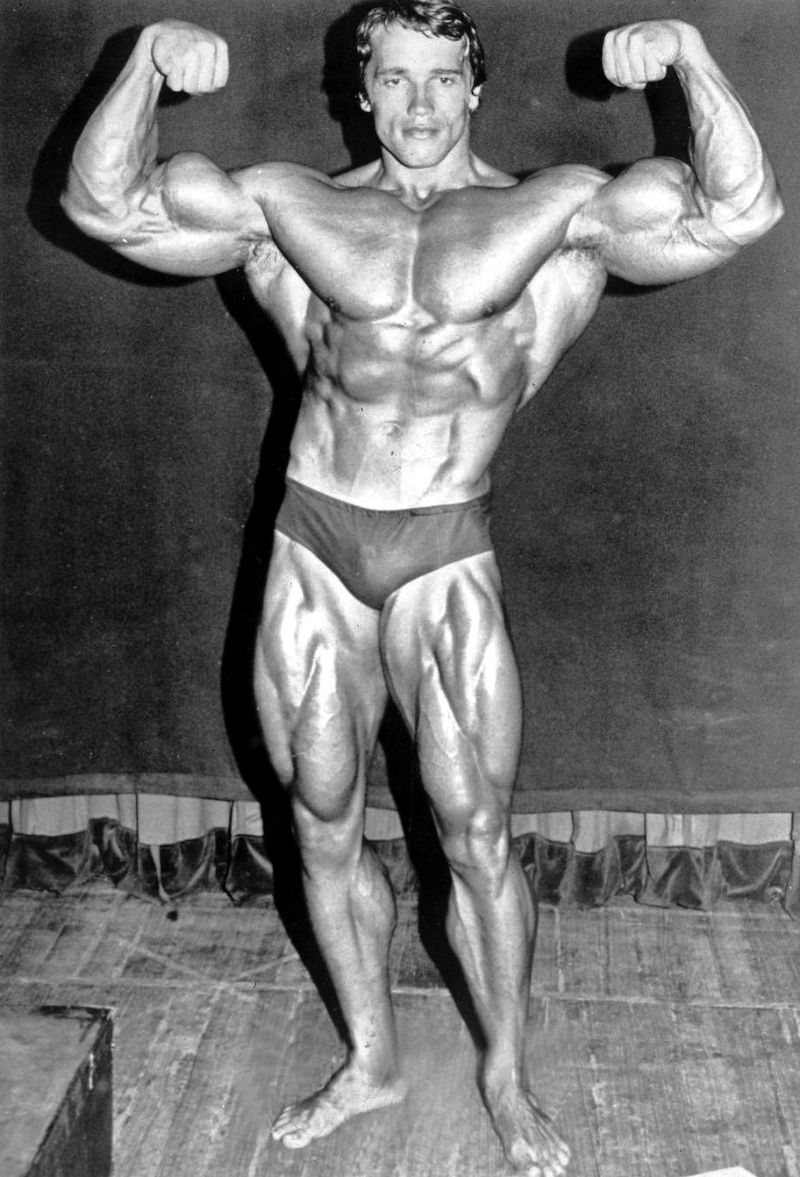
The 1970s saw the proliferation of subcultures, partly due to the rise of muscle culture. Also known as “the muscle cult,” this trend was founded on physical fitness, bodybuilding, and muscular development. This movement continues to influence current trends from an aesthetic perspective.
Men in this subculture strove to construct strong and toned physiques, generally through weightlifting or bodybuilding. This act reflected manliness, strength, and power.
To flaunt the fruits of their labor, men often donned tight t-shirts; this trend continued into the disco era when showcasing chiseled bodies by dancing with tightly fitted attire became popular.
The Touch of Velvet
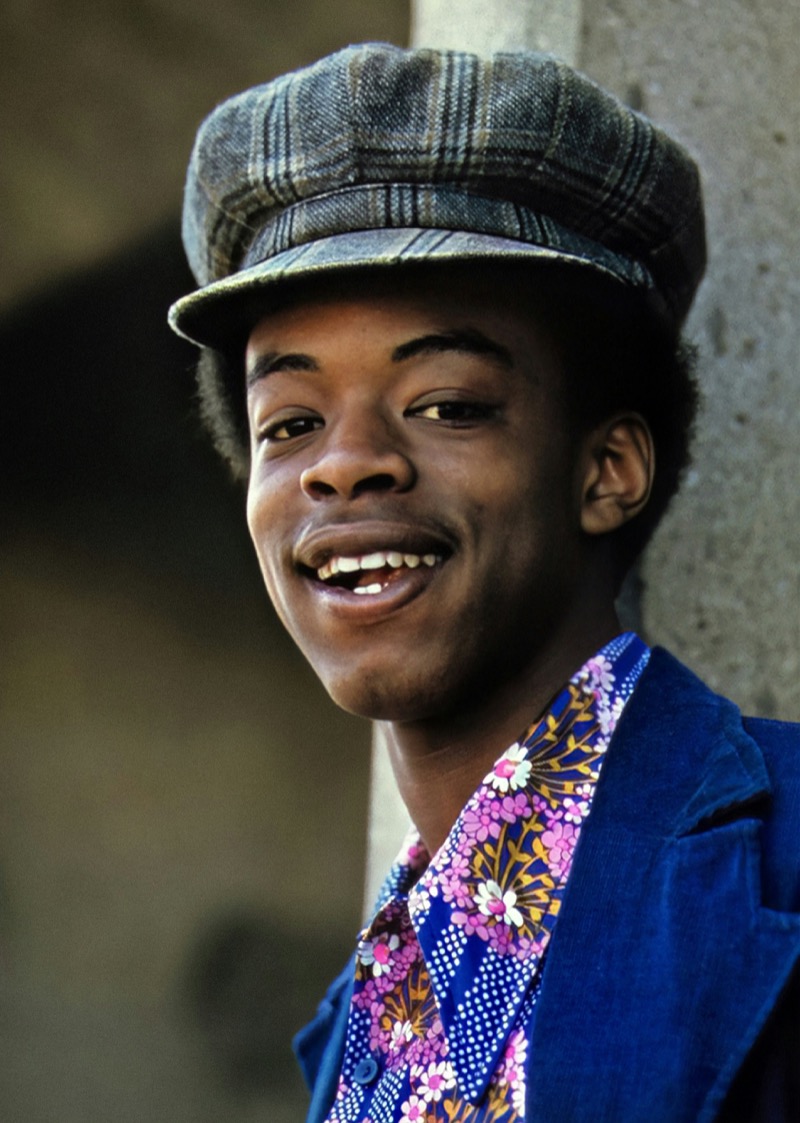
Velvet was the epitome of menswear, and for a good reason. Its soft touch and rich, textured look made it so desirable. Whether it was a velvet jacket, pants, or shirt, these pieces were sure to turn heads with their dramatic texture and rich color.
Deep purple, royal blue, emerald green, and burgundy were popular colors for velvet sports coats. Velvet is still a popular fabric today, so look for this opulent material the next time you’re shopping for a new outfit.
Glam Rock Style Clothes
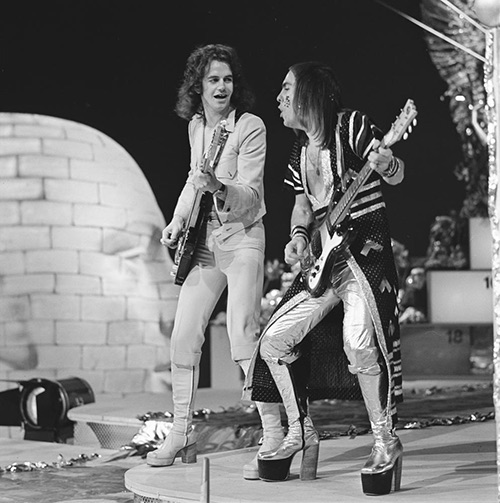
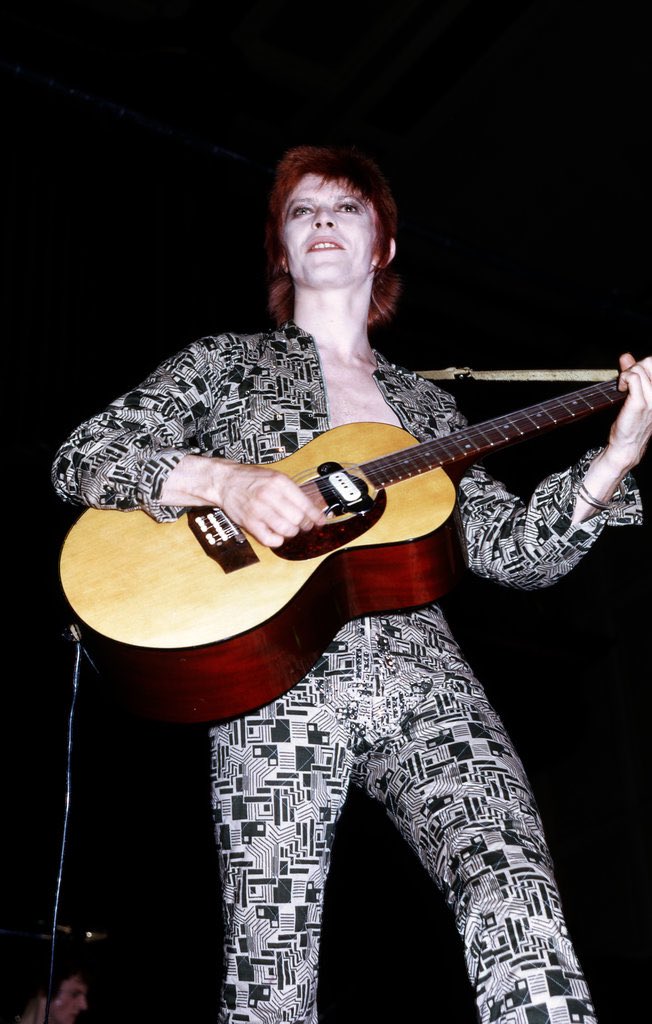
Right: Embracing his Ziggy Stardust era, David Bowie performs at Newcastle in a jumpsuit designed by Freddie Burretti in 1972. Photo: Rik Walton, CC BY-SA 2.0, via Wikimedia Commons
The 1970s was a time of bold choices, and men were no exception. During this era, the glam rock aesthetic emerged as a popular trend among men who embraced their inner rock stars with tight-fitting clothes in vibrant colors.
Glam rockers wore form-fitting pieces such as leather pants, metallic jumpsuits, and sequined shirts designed to show off their body shape while making a statement. Accessories like chunky platform shoes and long scarves completed the look for many glamorous gentlemen of the 70s.
Wide-leg Trousers
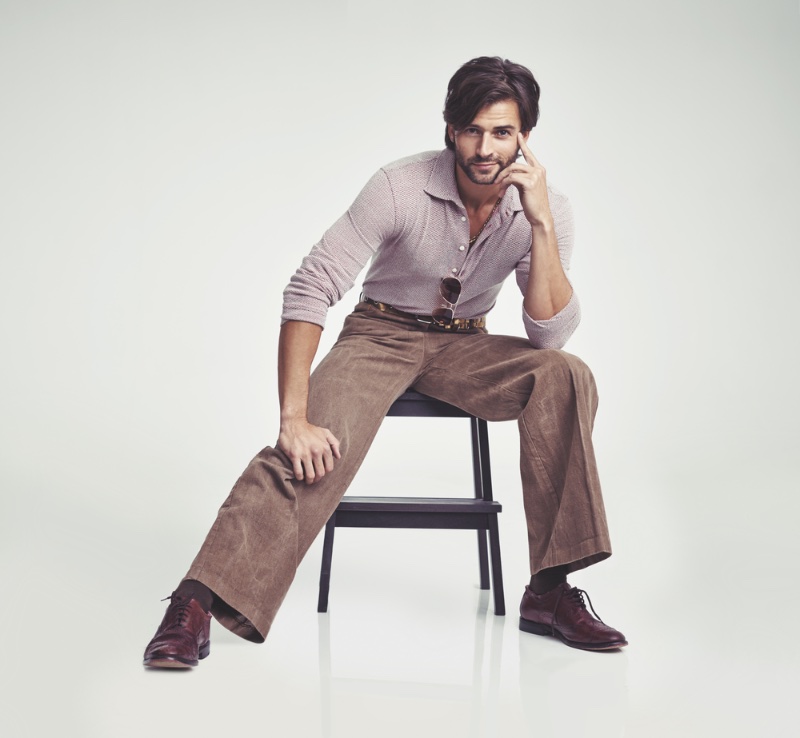
Wide-leg trousers were a staple of the scene, often remembered with fondness and admiration. These garments were popular for formal and casual wear, offering a comfortable fit that still looks great today—prevailing amongst 70s outfit ideas.
Men wore their favorite wide-leg trousers with everything from a button-down shirt and blazer to a basic T-shirt. From loose-fit chinos to flare jeans, this staple is making its return in today’s landscape.
But What About Flared Pants?
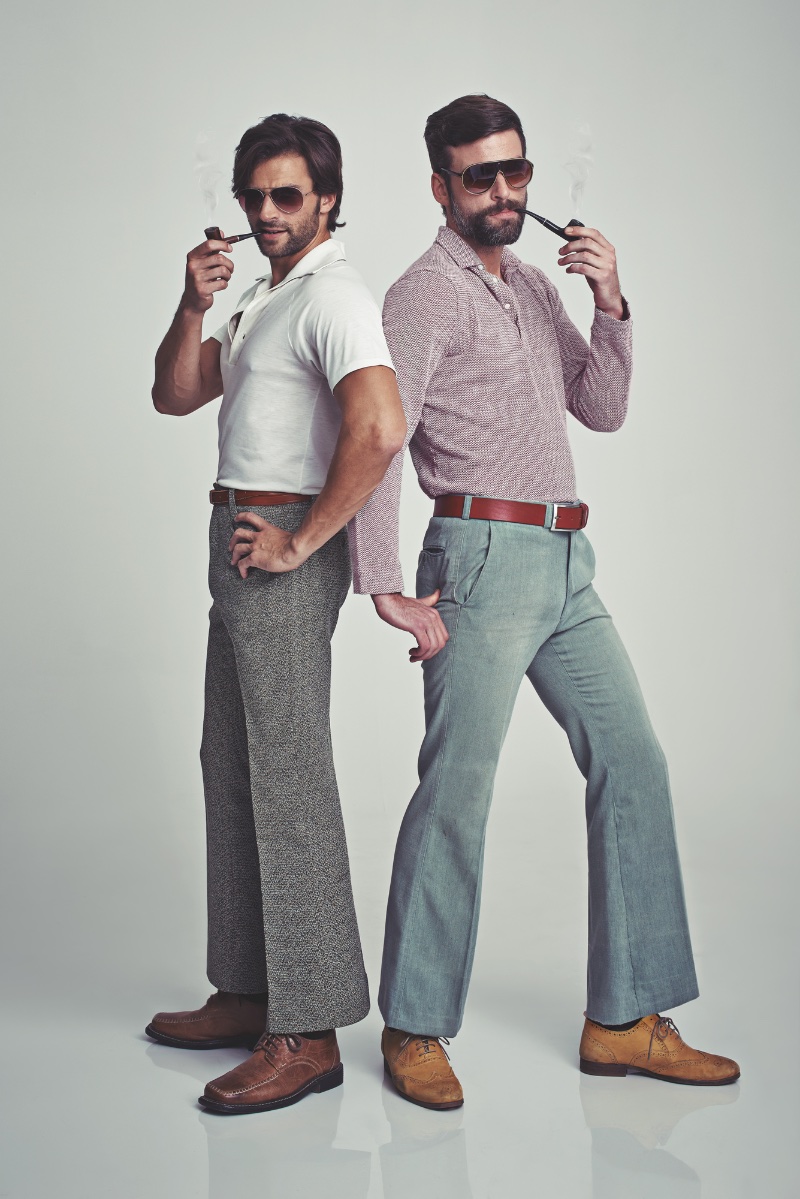
John Travolta’s iconic 70s clothes in Saturday Night Fever made him an unforgettable fashion icon, especially his white trousers. But what sets flared pants apart from wide-leg trousers?
While flared pants typically have a slim fit through the thigh and flair out the knee, wide-leg trousers are wider. Both types offer the 70s take on modern menswear while providing comfort and ease of movement.
’70s Punk Style Outfits
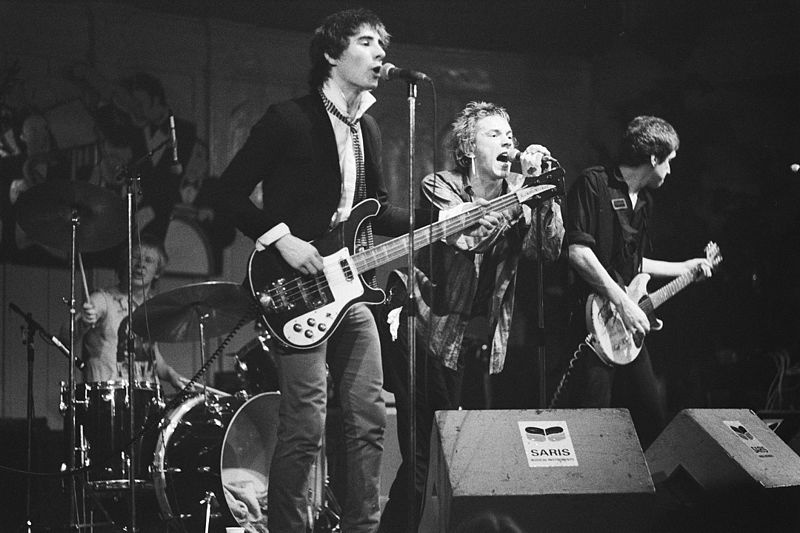
Since the mid-1970s, punk has been an emblem of rebellion against mainstream culture, and bands like the Sex Pistols became the forefront of this rebellion. These pioneers of punk music embraced an aesthetic that broke from tradition, with their skinny denim jeans becoming a signature element of a burgeoning fashion movement.
Men’s fashions included a diverse mixture of DIY clothing, such as leather jackets, distressed jeans, band tees decorated with spikes, studs, safety pins, and skinny denim jeans. The style was a form of rebellion, a sharp contrast to the flared trousers and loud prints that had dominated earlier in the decade.
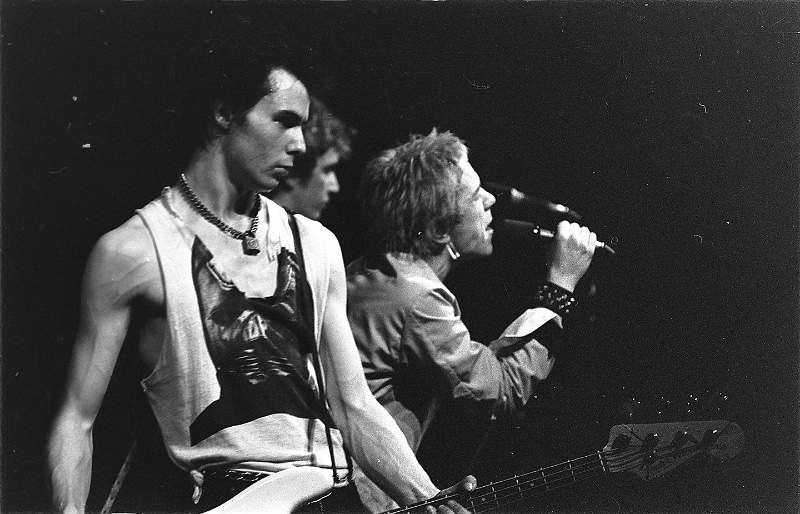
It was marked by edgy hairstyles like mohawks and makeup looks for both men and women that portrayed a sense of disillusionment for those who felt ostracized from society at large. Paired with leather jackets, ripped shirts, and an attitude of defiance, these jeans were uniform for those who felt marginalized or misunderstood.
Renowned icons of the punk scene include Johnny Rotten, lead vocalist for the Sex Pistols; Sid Vicious, bassist for the Sex Pistols; Joe Strummer, frontman and rhythm guitarist from The Clash; and Iggy Pop, singer-songwriter with The Stooges.
1970s Leather Jackets for Men
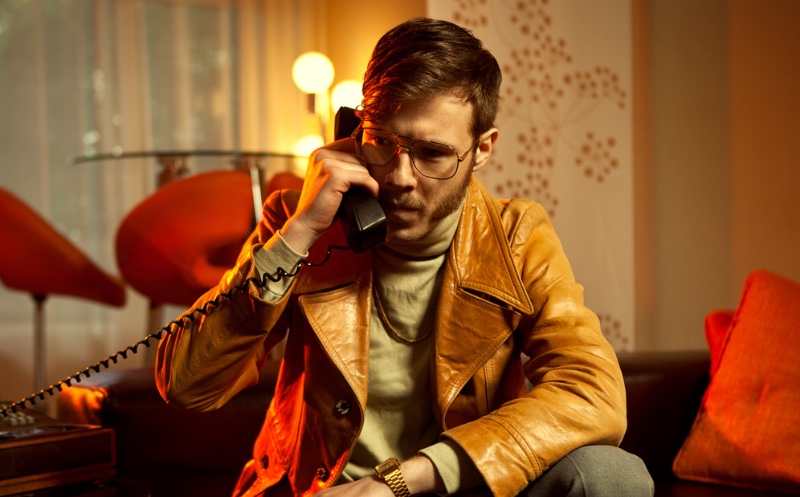
A signature 70s look for men often featured the leather jacket. Styles ranged from classic tan to daring shades like red or yellow, finished with exaggerated collars and lapels that became hallmarks of the decade.
Wide cuffs, prominent waistbands, buckles, and bold zippers offered extra attitude, while men chose between cropped jackets and full-length leather coats.
Athletic Wear Meets Everyday Style in the 70s
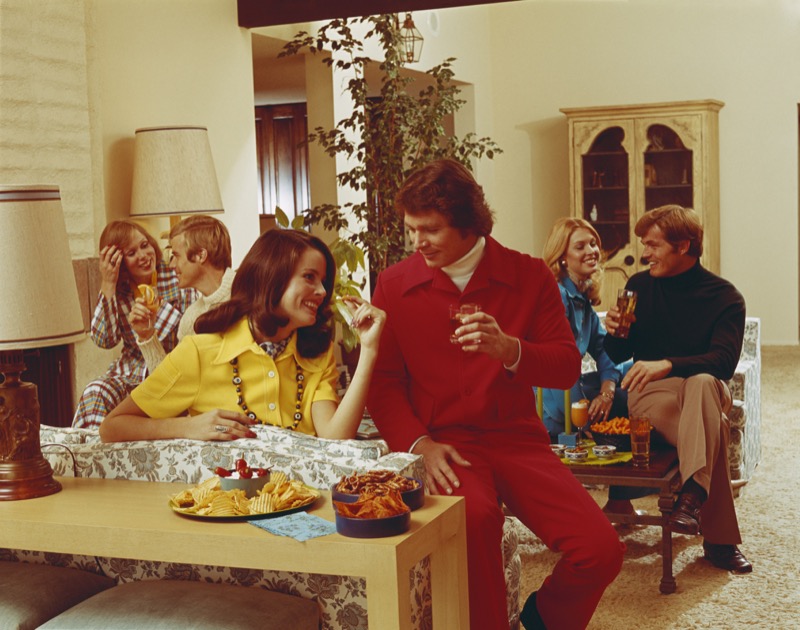
In the 1970s, athletic wear began blurring the lines between sports and everyday wear as men embraced a more relaxed and versatile approach to fashion. Polyester leisure suits became the go-to for everyday attire, combining comfort with style.
These suits often featured zip-up jackets and elastic-waist pants, offering a laid-back alternative to traditional tailoring while still maintaining a polished look.
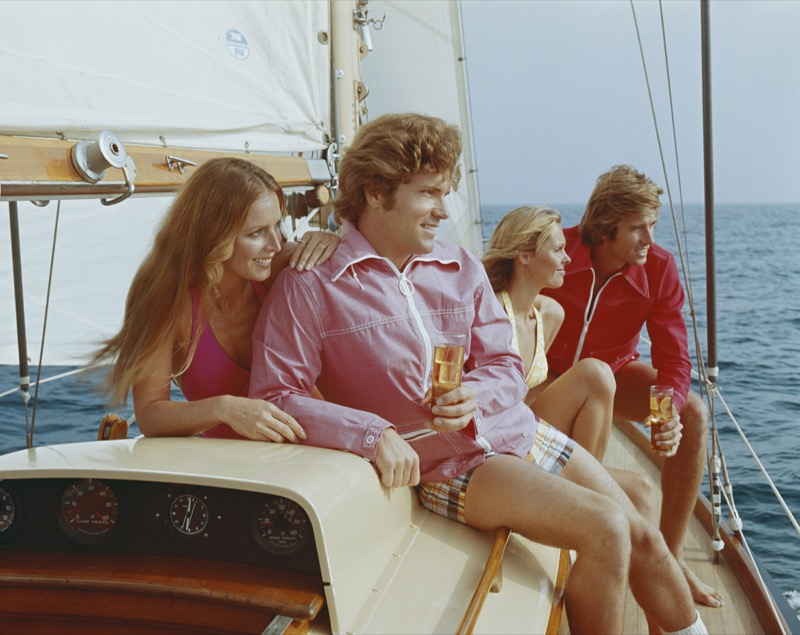
Bold patterns, such as geometric designs and vibrant stripes, were a hallmark of 70s athletic wear, injecting a sense of flair into even the most casual outfits. This era saw athletic-inspired clothing evolve into more than just gym wear as men began incorporating track jackets, sneakers, and sporty tops into their everyday attire.
’70s Men’s Accessories
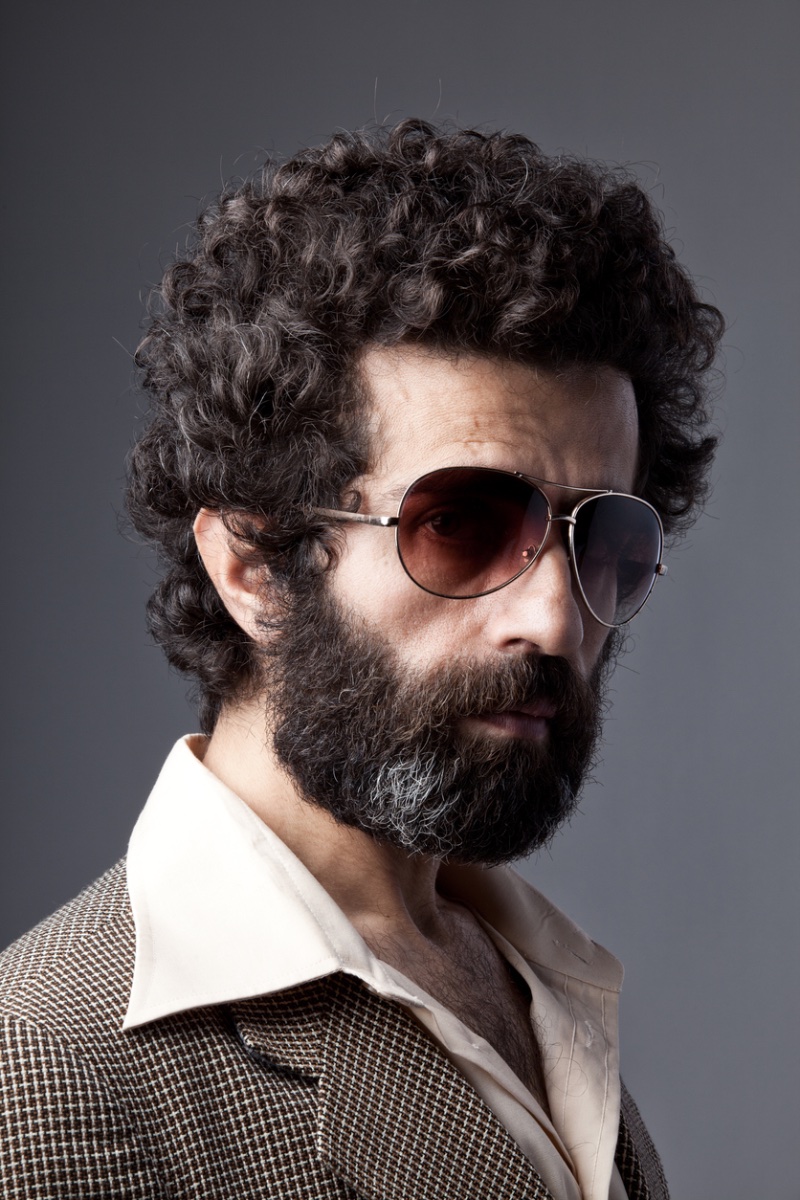
Men had plenty of accessory options. The decade was all about accessorizing, from popular styles like braided belts and aviator sunglasses to silk scarves and fedora hats. Retro shades, patterned neckties, and cufflinks were popular accessories then.
Men’s ’70s Shoes
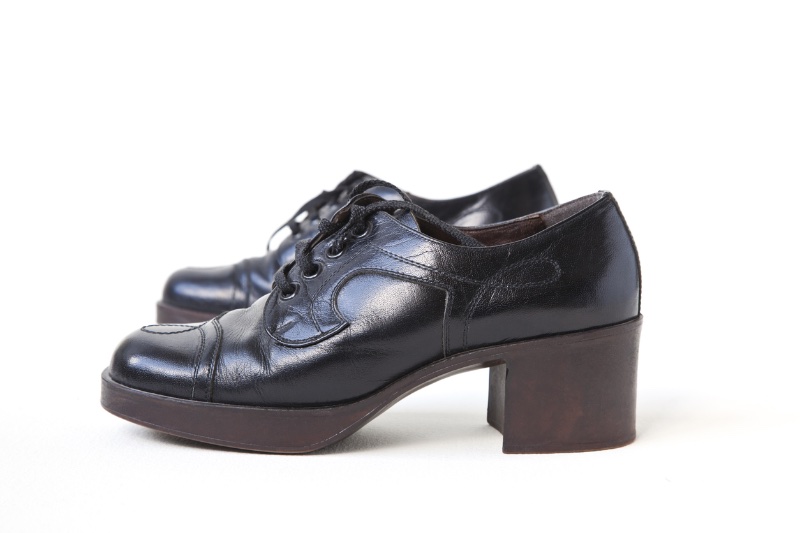
What shoes were fashionable for men during the seventies? Popular men’s shoes included loafers, moccasins, platform shoes, work boots, and sneakers. With so many different looks, it was easy for men to find shoes that suited their signature style.
Don’t Forget the Suede Jacket
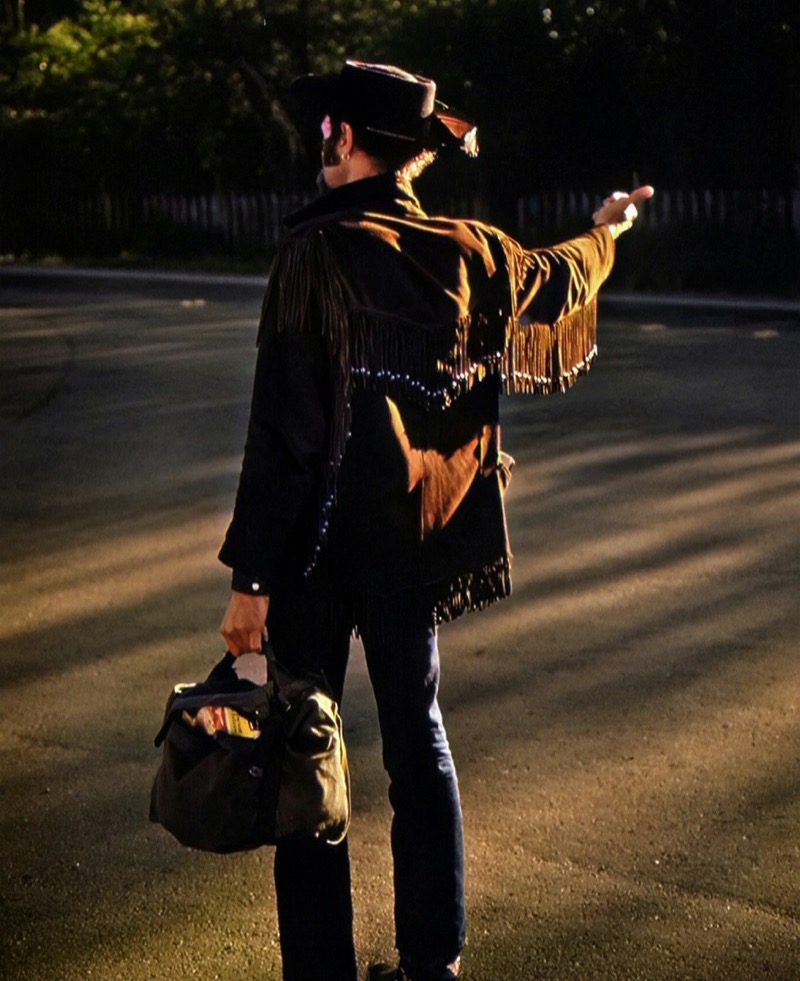
The suede jacket became a staple of 1970s clothes, winning over men with its distinctive texture and versatility. From classic blazers and fringe jackets to bombers, suede offered warmth and style, cementing its status as an essential outerwear choice.
Overall, What Did Men Wear in the 70s?
Male 70s attire embraced boldness, championing fearless choices across menswear. Leather jackets, silk shirts, bell-bottoms, and wide-leg pants stood at the center of this stylish era, marking the 1970s as a defining moment for statement-driven style.
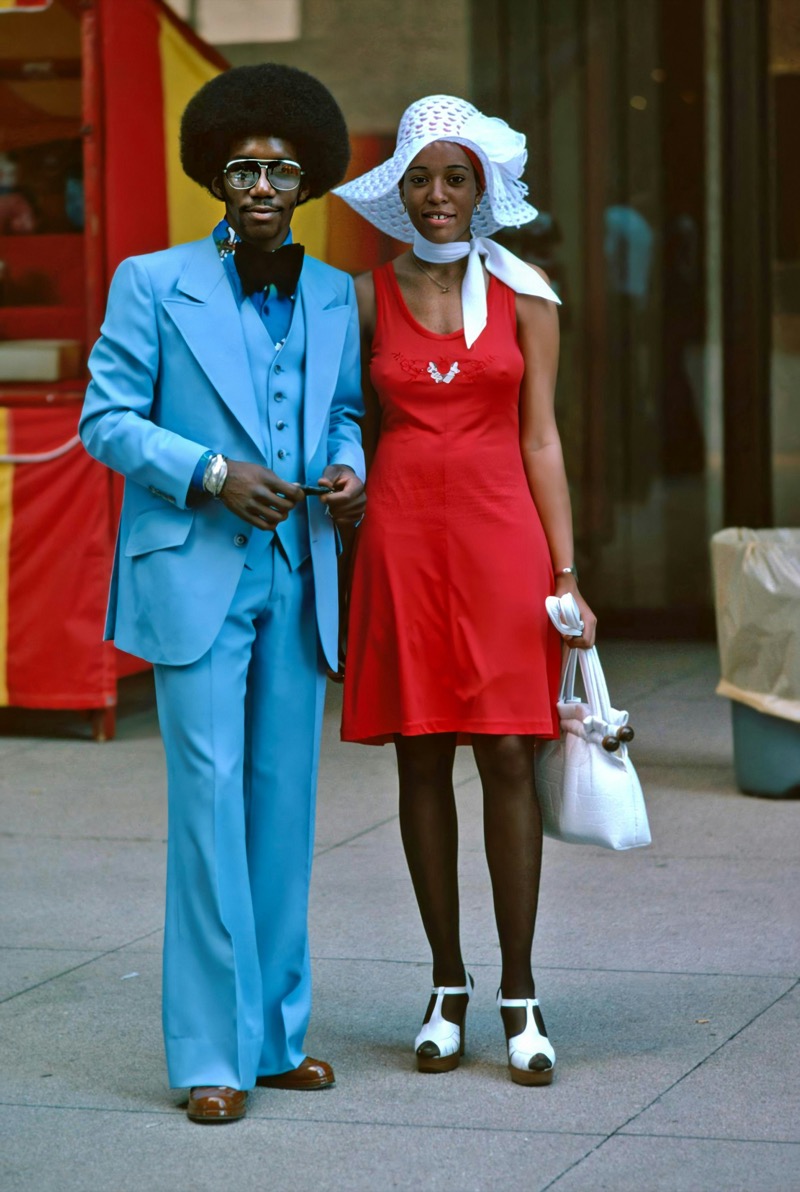
Today, 70s style clothing refers to vibrant colors, standout prints, and tactile fabrics such as velvet, corduroy, and satin. Modern menswear borrows from the era’s signatures, including turtlenecks, oversized collars, high-waisted pants, leisure suits, and platform shoes, channeling the aesthetic that made the decade unforgettable.
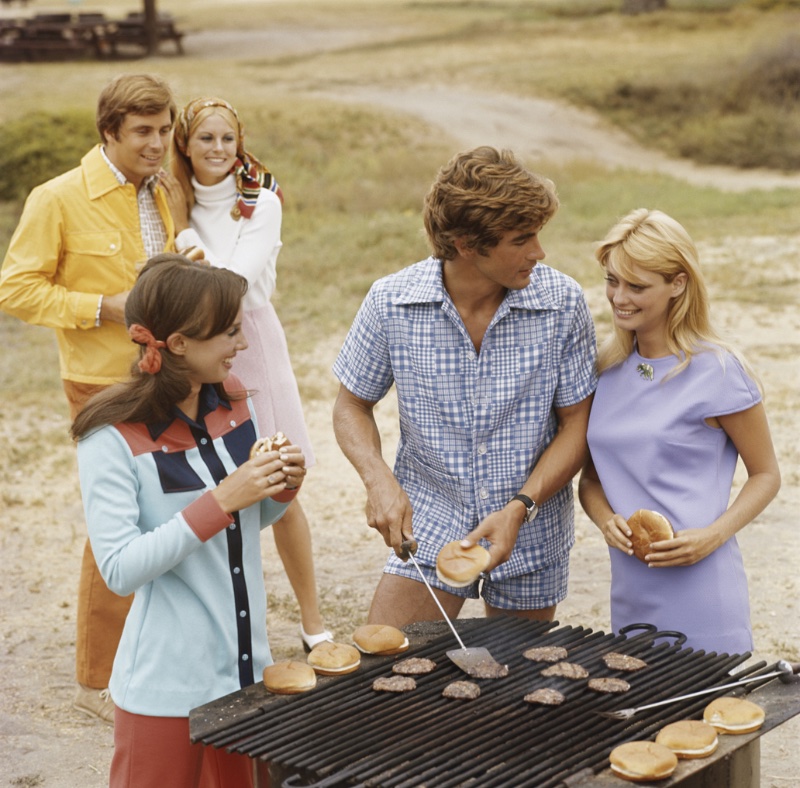
As the 1980s took hold, men’s style shifted from the relaxed silhouettes of seventies men’s fashion to sharper tailoring and stronger shoulders. The mood changed, but self-expression remained at the forefront.
80s outfits for men revolved around contrast, pairing power suits by day with leather jackets and acid-washed denim at night, capturing a new era defined by ambition and attitude.
